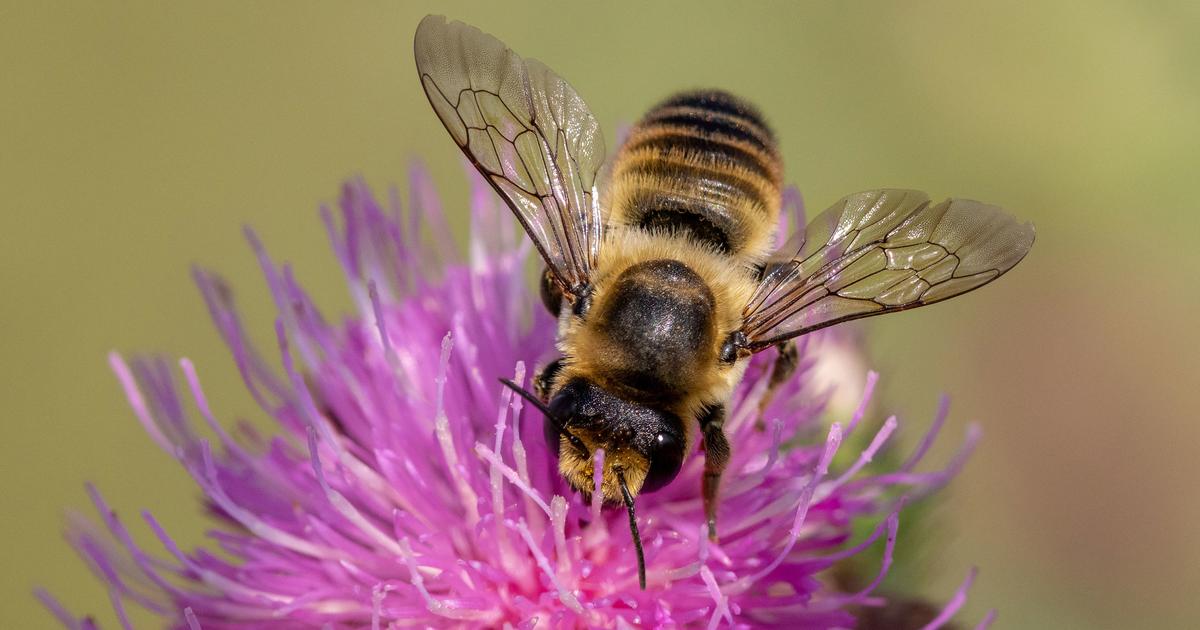Bees in the garden: Two natural enemies make life difficult for them
Created: 05/18/2022, 10:30 am
By: Jasmin Pospiech
Bees make a valuable contribution to the preservation of the ecosystem.
But in addition to the varroa mite, there are other enemies that pose a real threat.
Munich – Small, but mighty: bees not only produce delicious honey, which later ends up on our breakfast rolls as a spread.
They are also very important to our ecosystem.
Because they pollinate plants in the garden or on meadows while they fly from flower to flower in search of food.
In order to get the nectar, they often have to crawl deep into the calyx, while pollen gets caught on their coat of hair, which they transport on their flight.
Accordingly, they make an important contribution to the environment.
Bees in the garden: Two natural enemies make life difficult for them
A female beewolf stings and paralyzes a honey bee.
(Iconic image) © blickwinkel/Imago
The hard-working beneficial insects not only have friends in the wild, but also many natural enemies.
Not all pose a serious threat, however;
those that wipe out entire colonies of bees, on the other hand, do.
Anyone who keeps bees in the garden should therefore know about them and take appropriate protective measures.
This is especially true for the varroa mite.
It is even considered the main reason for bee deaths throughout Europe, as the German Bee Monitoring (DeBiMo) shows.
Once a colony of bees is infested, it is almost wiped out.
Because the parasite feeds on your fat body, the so-called "bee liver", which is responsible for a large number of bodily functions.
This is reported by the "Bayerischer Rundfunk" (BR).
As a result, the immune system is weakened, detoxification is disturbed and food can no longer be stored properly.
But there are two other natural enemies that have their tricks to harm the livestock.
These include the beewolf and the bee louse.
Bees in the garden: Digger wasps ambush them
The former are black and yellow insects that belong to the family of digger wasps (Philanthus triangulum).
These are found throughout much of Europe and occur in large numbers during the summer.
The beewolf is only a few millimeters larger than the honey bee, but that doesn't make it any less dangerous.
The female lies in wait for the bees in a flower, attacks them and stuns them with her venom.
This paralyzes the bee, and then the female presses the bee's abdomen with the tip of her abdomen.
This opens the bee's mouth and reveals the nectar that has already been collected.
The beewolf then enjoys this.
The bees themselves are flown to the nest where they are fed alive to the larvae.
Bees in the garden: the parasite also wants something from the food
In addition, the bee aphid (Braulidae) is a parasite that lives in the fur of the bees, often in that of the queen.
They belong to the family of dipterans (Diptera) and are actually not biologically seen as lice, but are classified as flies.
One of the seven species of bee aphid, the Braula coeca, is the most common in this country, but it is tiny and barely visible to the naked eye.
With its six short legs, the parasite clings to the fur at chest level.
Then he waits until the queen is fed and makes sure he gets some crumbs too.
Finally, the bee aphid lays its eggs on the wax caps of the honey cells.
Once the larvae have hatched, they eat their way through the honeycomb.
With devastating consequences.
There are many small holes.
It can also happen that the queen stops laying eggs.
But there is a little trick that hobby beekeepers can use to rid them of the unwelcome pests.
To do this, take a cotton swab soaked in honey and dab the queen with it.
The greedy bee louse immediately feasts on it and can be easily removed in this way.



/cloudfront-eu-central-1.images.arcpublishing.com/prisa/WTBKRDIX6ZE3LORP2WWAXVTQMQ.jpeg)




